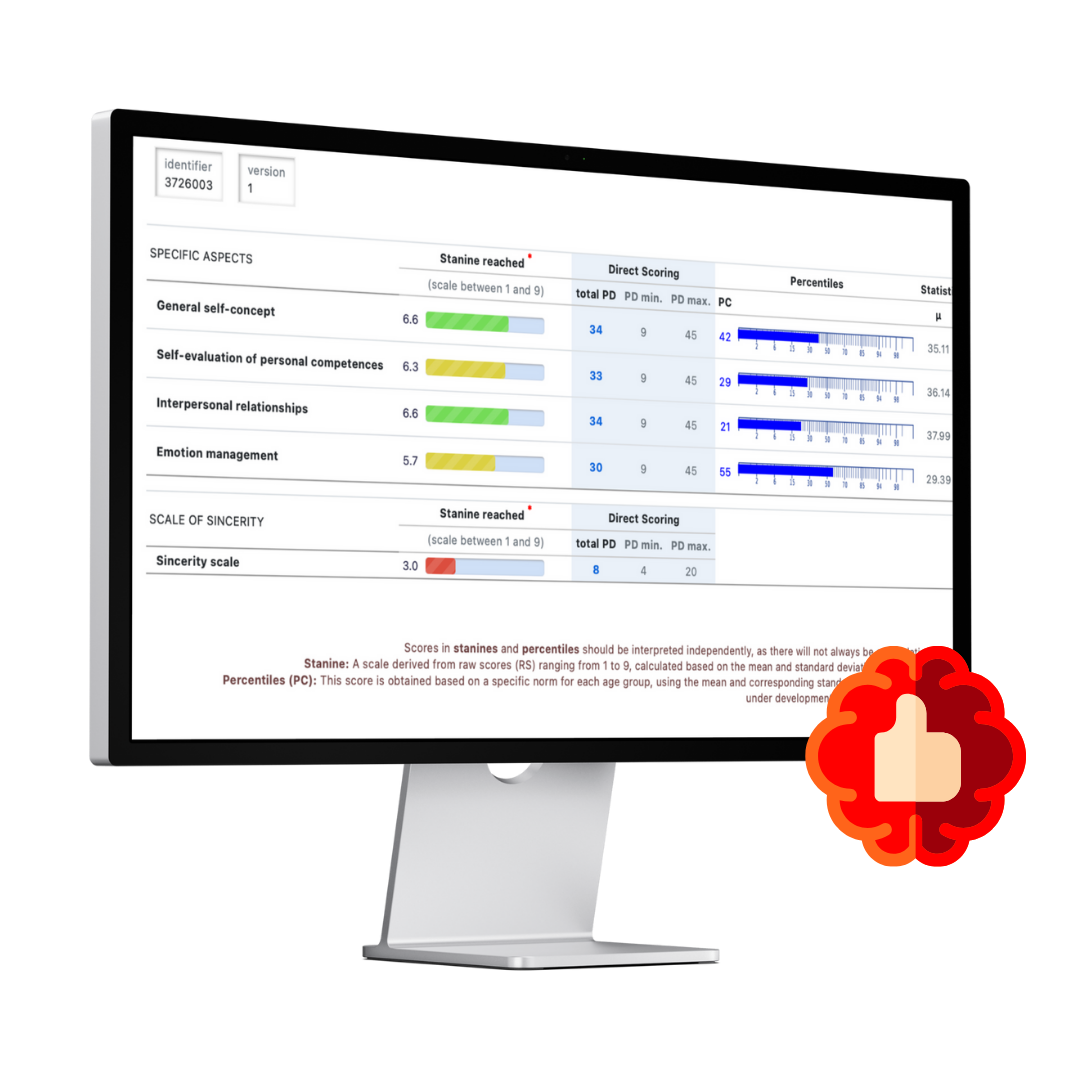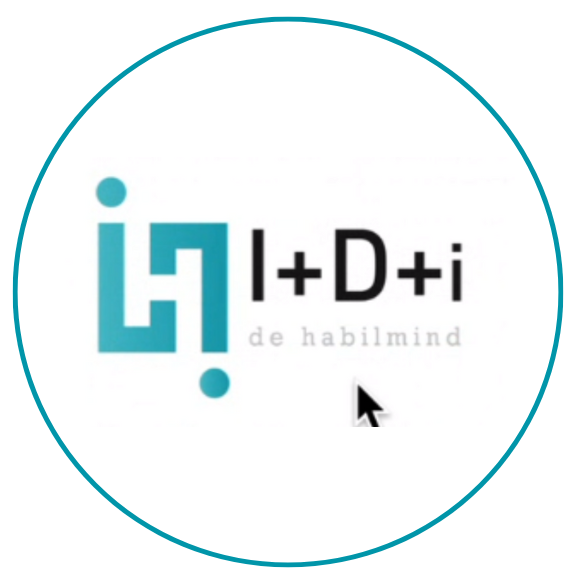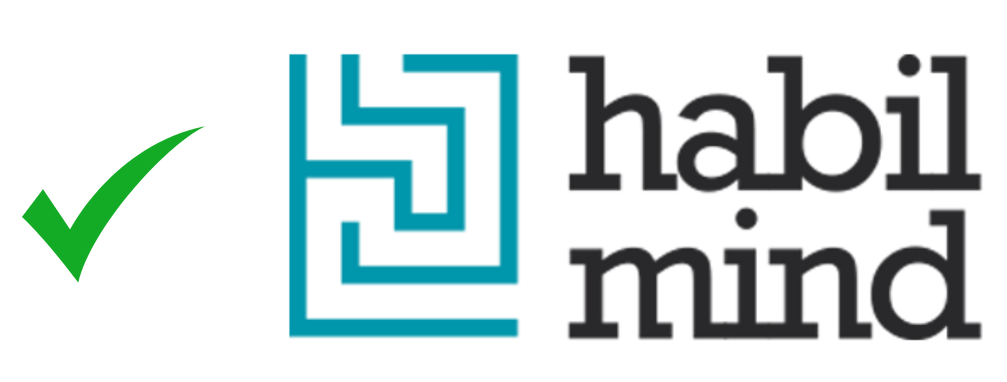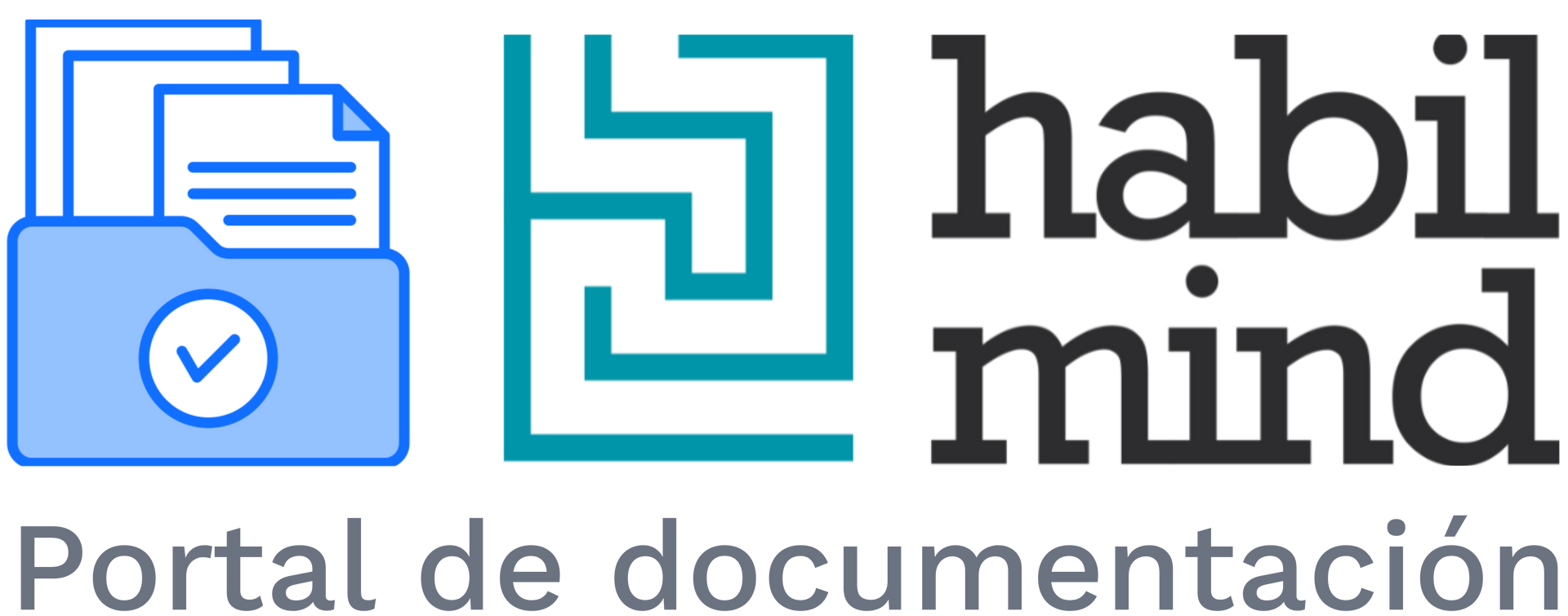Habilmind > Related to Mental Health and Emotional Well-being > Self-Concept and Self-Esteem
Self-concept and self-esteem
Analysis of personal identity development
Assessment of self-esteem levels and the formation of self-concept, built from an individual's belief system shaped by self-perception and past experiences. Self-esteem is one of the fundamental pillars of personal identity.
ℹ️ Application: Collective and individual
🕓 Duration: 15 minutes
✅
Applicable age: 9 years and above

Authors

Isauro Blanco
Researcher and speaker specialising in cognitive development.

Habilmind R&D&I Team
Habilmind team dedicated to educational innovation.
What does your school obtain from this tool?
01
Build
A strong identity.
02
Foster
Emotional well-being and the development of meaningful relationships.
03
Promote
Education from a holistic perspective of the individual.
04
Prevent
Low academic performance.
05
Assess the impact
Through the re-administration of the tool.
Problems you prevent (or mitigate) when using Self-Concept and Self-Esteem
1. Lack of motivation and low academic performance: Identifying and addressing self-concept and self-esteem issues helps strengthen students' confidence and sense of security, encouraging active participation and improving academic achievement.
2. Behavioural problems and interpersonal conflicts: Intervening in students' self-concept and self-esteem can enhance emotional well-being and social skills, reducing conflicts and behavioural issues at school.
3. Absenteeism and school dropout: Strengthening self-concept and self-esteem increases students' sense of belonging and motivation, lowering the risk of absenteeism and school dropout.
4. Vulnerability to bullying: Promoting healthy self-esteem helps students develop resilience against bullying and intimidation, protecting their emotional and social well-being.
Isauro Blanco describes the Self-Concept and Self-Esteem test
Video in which Isauro Blanco explains the Self-Concept and Self-Esteem test.
Useful Links
Author
Explore the contribution of the author in the development of the Self-Concept and Self-Esteem test. Read more
Check prices and benefits instantly
Use the “Prices” button to view the available plans and choose the one that best suits your school.
Free trials are available for schools, colleges, institutes, universities, clinical psychologists, and researchers.
































































